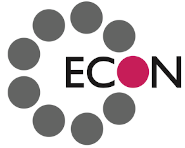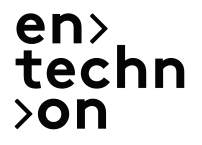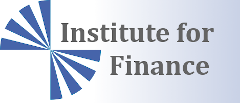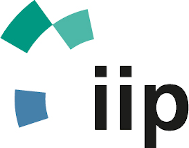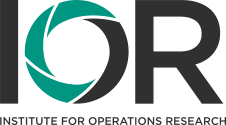The Institute for Customer Insights (CIN) was established at the Karlsruhe Institute of Technology (KIT) on January 1, 2025
Institutes at KIT Department of Economics and Management
The Institute of Applied Informatics and Formal Description Methods (AIFB) was founded in 1971. The Institute's teaching comprises basic computer science training tailored to the respective degree program, as well as the communication of computer science research findings that are crucial for the development of innovative products and services. AIFB's research focuses on the further development and application of computer science concepts and methods for the development, use and evaluation of usable, efficient, secure and reliable information and communication technologies and their operational environment.
The Institute ECON pursues a distinctly quantitative approach in research, teaching and innovation. The focus is on topics such as market design (including auctions, network markets, innovation research, financial trade and moral aspects of markets), participation, public management, macroeconomics, computational economics and econometrics. Theoretical and empirical research are often closely interlinked, such as in our interdisciplinary KD2Lab for experimental economic research. We regularly organize seminar series and workshops, e.g. the Econ-Finance seminar series, the HeiKaMaX workshops on experimental and behavioral economic research and the BETA-KIT workshop. Our working paper series is available here. The Institute maintains strong national and international contacts with other academic institutions, partners from industry and politics and the media.
The aim of the Institute for Entrepreneurship, Technology Management and Innovation is to make it possible to actively shape the future in order to create sustainable benefits for society, the economy and science.
Together with the players in the KIT environment, we want to develop knowledge and skills to turn new technological and business opportunities into responsible innovations through entrepreneurial action. This knowledge should be scientifically sound and prepared for entrepreneurial practice.
The focus in the field of entrepreneurship is on recognizing potential for start-ups, their strategic planning and efficient implementation. In the area of innovation and technology management, the focus is on securing the sustainable future viability of organizations, identifying, developing and using core competencies in a changing environment with a focus on the innovation and competitiveness of the players in the innovation system.
The focal points are united by the pursuit of recognizing the potential in upcoming market, technical and social upheavals and making it fruitful for the players in the various fields of action through adequate strategic, organizational and methodological concepts.
The Institute's work focuses on management issues, which we examine in the three research groups Human Resource Management, Management Accounting and Corporate Governance. The analysis of strategic decisions, financial management information as well as incentive and motivation mechanisms form the core of our work.
We maintain an international network, use theory-led and data-based approaches and develop action-guiding analytical frameworks. We use a mix of methods from game theory analyses, empirical studies based on company data and surveys as well as behavioral economic experiments. Through our close cooperation with companies, our research results are regularly applied in practice.
Our teaching is research-oriented and combines sound scientific methodological knowledge with application-oriented practical knowledge. Participatory elements such as online voting and case studies as well as visits from practitioners are an integral part of the training at the institute.
The Institute for Industrial Production (IIP) consists of the Chair of Business Administration, in particular Production Management and Logistics, and the Chair of Energy Economics. In 1991, the Franco-German Institute for Environmental Research (DFIU) was also affiliated to the IIP.
The core topics of the Chair of Business Administration, in particular Production Management and Logistics, are techno-economic analyses of industrial value chains, especially in the areas of risk management, circular economy systems and resource efficiency.
The Chair of Energy Economics deals with techno-economic issues along the entire energy value chain, from primary energy production, energy conversion and energy transport to energy distribution and energy use.
The Franco-German Institute for Environmental Research (DFIU) develops solutions for cross-border problems in the areas of air, water, soil, waste and energy.
The Institute for Operations Research is concerned with the development and application of mathematical methods to support decision-making and optimization processes. The focus of the institute is oriented towards the requirements of such processes. Statistical methods of data analysis are developed as part of an analytics process to obtain data and information. The resulting optimization problems can be solved with a different focus: Discrete optimization problems are characterized by their complexity and require problem-specific adapted solution methods. Continuous optimization deals with the efficient treatment of non-linear effects, among other things. Finally, stochastic optimization takes into account the uncertainties present at the time of decision-making using suitable concepts.
The Institute of Statistics was founded on January 1, 2024 from chairs of the KIT Department of Economics and Management and the KIT Departments of Mathematics.
The Institute of Information Systems (WIN) was established at the Karlsruhe Institute of Technology (KIT) on January 1, 2025. The establishment of the WIN Institute at KIT is a response to the growing importance of researching and shaping the digitalization of the economy and society from a socio-technical perspective. The mission of WIN is to create relevant scientific knowledge for value-creating collaboration between information technology and society. We pursue an interdisciplinary approach and build bridges between computer science, economics and management sciences as well as the humanities and social sciences. We train people with specialist and interdisciplinary skills in the field of Information Systems for a practical or academic career. We are in close dialog with business and society and contribute to sustainable digital transformation.
Associated institutions
The KIT Department of Economics and Management cooperates with various internal and external institutions. A selection is listed below.


